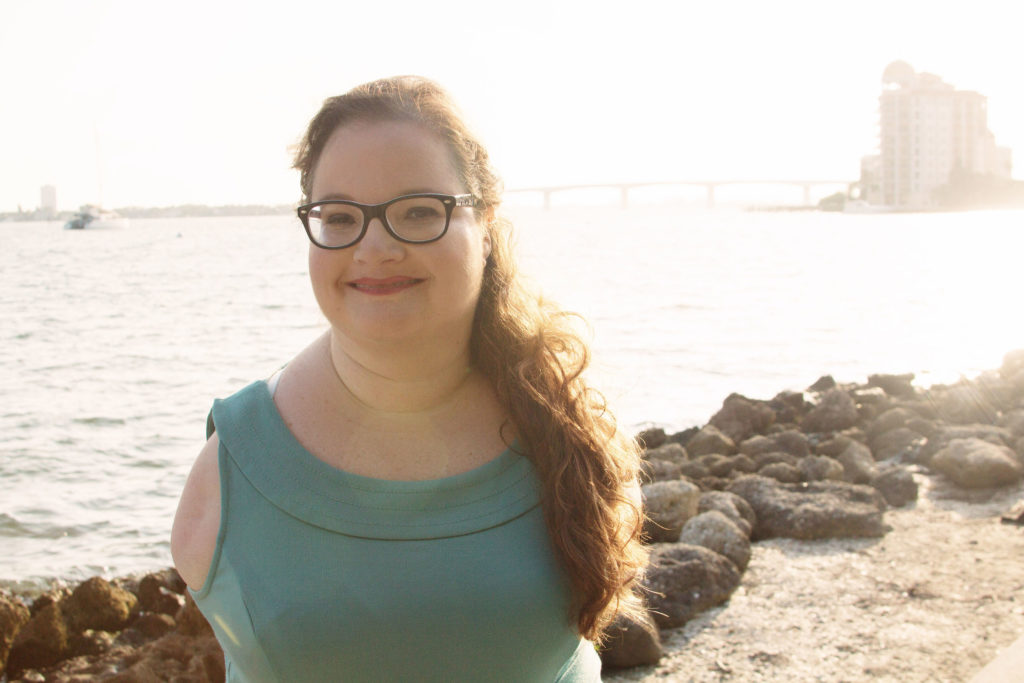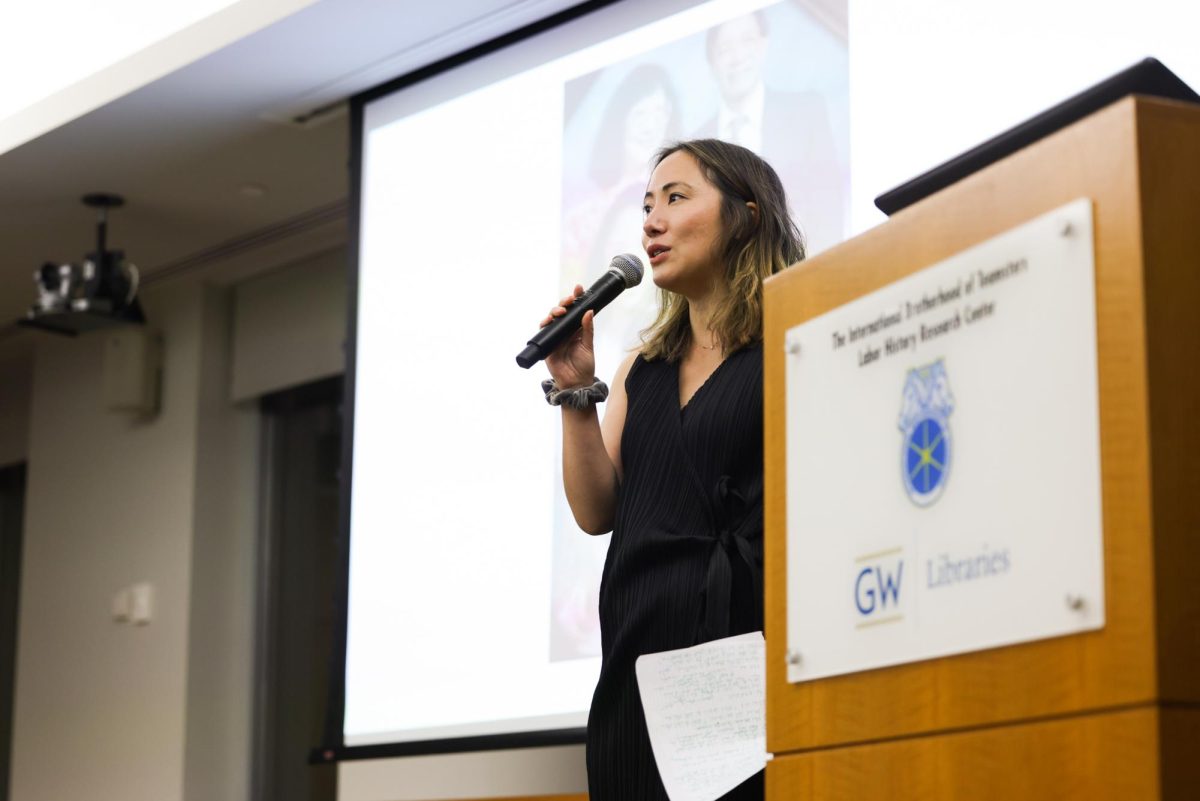Olivia Babis joked that she became an advocate at 3 years old when she accompanied her grandmother to a school board meeting in Lakeland, Fla. At the meeting, Babis’ family argued for her right to learn outside of a special education classroom.
Parents at the meeting said they did not want “those kids” – referring to students with disabilities – going to school with nondisabled children in the public school system. She would have no problem keeping up with class material, but Babis was born without arms.
“I knew that anger was directed at me,” Babis said. “That was wrong, and I wasn’t going to stand for it, even at 3 years old.”
Babis, who spent much of her undergraduate career until 2003 at GW before graduating from the University of Memphis, is vying for the District 23 seat in the Florida state Senate, which represents Sarasota County and part of Charlotte County. Channeling frustration for how she and other people with disabilities are treated, Babis now advocates for improving the public school system, transportation services and affordable housing.
She said those with disabilities deal with a lack of political representation despite being financially supported by federal taxes and are an underserved population within the United States.
Florida has been ranked among the worst in the nation for accessibility – an issue Babis, a Democrat, and her team set out to tackle when she filed her paperwork in April to run for the open seat, which was vacated by Greg Steube earlier this year.
While Sarasota ranks as one of the oldest congressional districts in Florida, with the average age at 47, Babis said the county remains inaccessible to senior citizens and people with disabilities.
“Our elder population and people in the disability community have a lot of things in common,” Babis said. “We share a lot of interest in issues so we thought with the makeup of the population – the age of the district – that would give me maybe a stronger likelihood of being able to win this seat.”
Sen. Tammy Duckworth, D-Ill., who received her master’s degree from GW in 1992, became the first person with a physical disability to be elected to the U.S. Senate in 2012. If Babis wins the seat, she will be the first person with a visible disability to be elected to Florida legislature – a representation that is long-awaited in District 23, Babis said.
“There are people behind me that are counting on me to continue doing this,” Babis said. “And if I’m not doing it, then I don’t know who else is going to.”
As a vocal advocate for the disabled community, Babis is on the Citizens with Disabilities Advisory Board for Sarasota, where she works to improve accessibility and fair wages for people with disabilities.
Among the issues Babis hopes to tackle if elected to the state legislature is health care for disabled people. Babis said the state’s current policy places people with disabilities on lengthy waitlists for programs and other services, like a personal care attendant, if they choose to move to another state.
Babis wants to push back and shed light on the ways Florida handles issues regarding disability, she said. In Florida’s school system – even in the years since Babis attended – there is a lack of funding for disability services, and students with disabilities must apply through the McKay Scholarship to be placed in for-profit charter schools.
“It’s kind of segregating disabled students again, the way they were back in the 1970s,” Babis said.
As the election draws closer, Babis juggles work and local advocacy projects while also making phone calls to constituents, participating in candidate forums and canvassing. She is taking a semester off from the City University of New York’s online Master of Arts in Disability Studies Program while she campaigns.
But Babis said her hectic schedule is worth it because the residents in her district “deserve better representation” than what they currently have – a fight she’s faced since she was a toddler.
“It’s always said, ‘you’re not invited to the table, to bring your own chair,’” Babis said. “That’s what I’m trying to do for the disability community to make sure they’re included in all conversations.”




